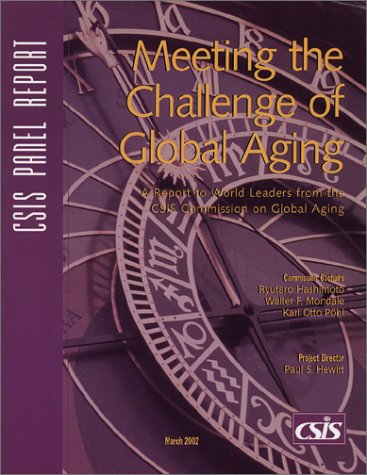The global economy faces a transition of unprecedented dimensions caused by rising old-age dependency and shrinking working-age populations among the world's largest economic powers. In an important respect, global aging represents a success story: the advent of mass survival into old age. But population aging is driven primarily by a decline in birthrates. Below-replacement birth rates over the past four decades have left Japan and Europe with the prospect of shrinking numbers of workers and consumers for much of the next half-century, while North America faces an abrupt slowing of labor force and population growth. These declines will occur even as the retirement of the postwar baby boom generation produces a large increase in pension-eligible populations across the developed world. For the nations directly affected, the likely consequences will include rising deficit pressures and slower economic growth. These problems will initially be felt in economies that today account for two-thirds of global output, which suggests that, in the absence of effective policy responses, global aging poses a significant threat to global prosperity.It was to examine and make recommendations on this cross-national challenge that the 85-member Commission on Global Aging -- consisting of leading voices from politics, business, civil society, and a range of academic disciplines from the United States, Japan, and Western Europe -- came together in 1999-2001 under the auspices of the CSIS Global Aging Initiative to develop policy recommendations for the countries most directly affected. This is the Commission's final report.
- ISBN10 0892064099
- ISBN13 9780892064090
- Publish Date 1 March 2002
- Publish Status Active
- Publish Country US
- Imprint Centre for Strategic & International Studies,U.S.
- Format Paperback
- Pages 96
- Language English
